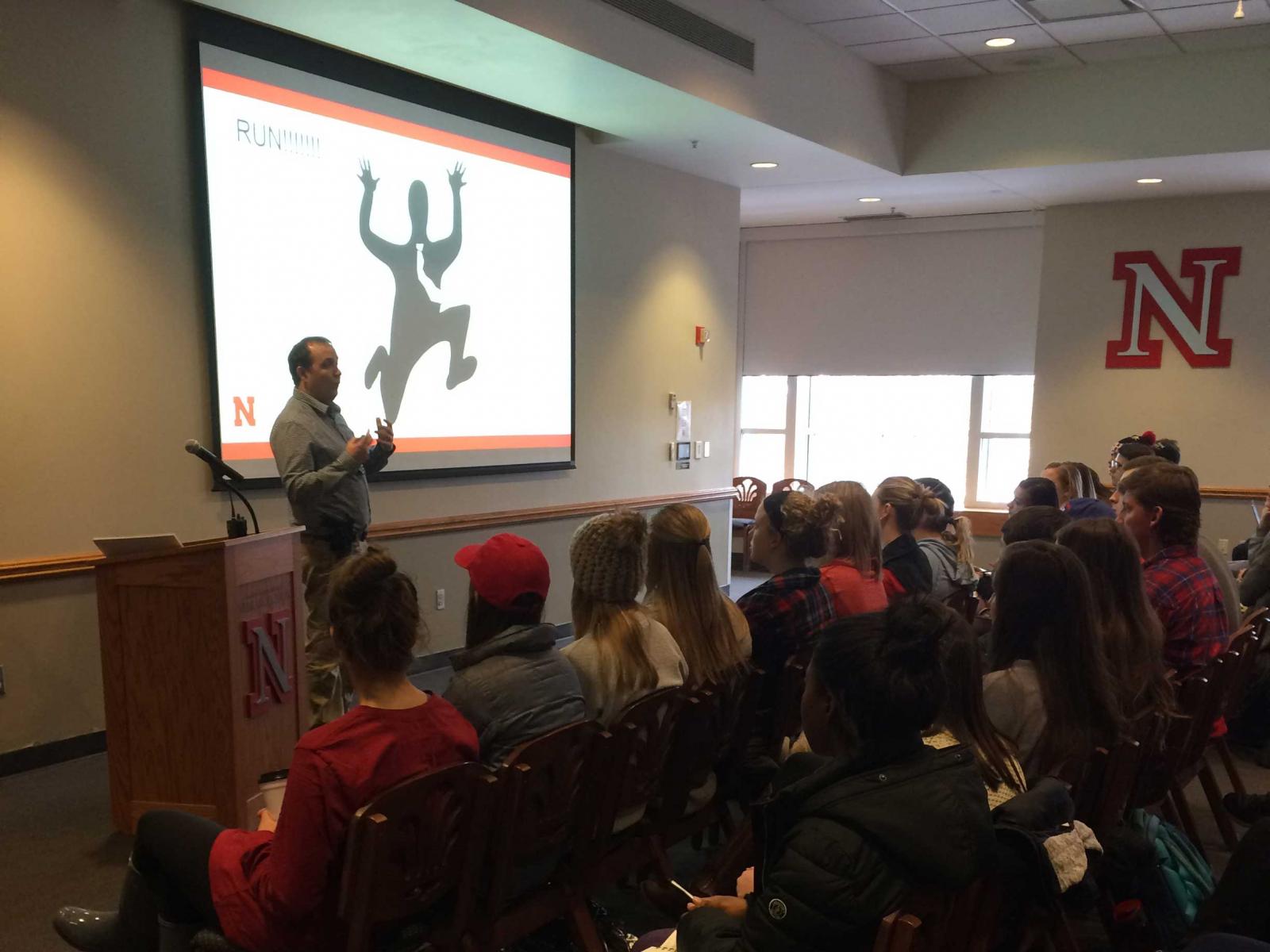Monday, February 27, 2017 Greek leadership symposia encourage education and reflection

On Friday, Feb. 24, the second Greek leadership symposium of the semester took place with more than 142 students present. At the symposium Nolan Conradt, the education and training officer for the University Police Department, presented on emergency plans and situational preparedness.
“It is good to be mindful of what actions to take in the case of emergencies or crises and to be more aware of our surroundings,” said Shayne Arriola, a member of Pi Kappa Alpha and president of the Interfraternity Council.
"Officer Conradt got students thinking about action plans to be prepared for worst-case scenarios," said Gabby Williams, a member of Alpha Delta Pi and president of the Panhellenic Association. "Overall, I think the students in attendance benefitted from his presentation.”
Additional topics presented earlier in the academic year included the dangers of alcohol, sexual misconduct, bystander intervention training, and diversity and inclusion. A session on judicial and student rights remains scheduled for April.
Phil Foster, a graduate assistant in the Office for Fraternity and Sorority Life (OFSL), says the intention of the leadership symposia is to educate multiple leaders in each fraternity and sorority so the students can work together to inform their peers.
“We have chapters send the president and one representative from each grade level,” said Foster. “We want them to talk to one another about the experiences in their organization and develop a plan to educate the chapter members.”
Most of the leadership symposium presentations are provided by university departments, increasing the interaction between campus resources and students. Presenters often make available additional resources or training materials available to the organization’s leaders.
For example, OASIS director Charlie Foster provided a tool kit to assist chapters with educating their peers on inclusion and hosting difficult conversations upon the conclusion of the diversity and inclusion program. 84.3 percent of leaders who attended that session agreed that they were better equipped to approach a brother or sister who is expressing comments that may be found offensive or inappropriate.
In addition to the monthly leadership sessions, the OFSL implemented Friday Afternoon Collaborations (or FACs) to strengthen training and communication among individuals with similar leadership roles in different organizations. Since August, the office has facilitated presentations for new member educators, social chairs, treasurers, philanthropy chairs, PR/marketing chairs, alumni coordinators and house managers.
“Some chapters do a better job than others in transitioning individuals for their chapter role,” said Jon Gayer, coordinator for fraternity life. “We felt that FAC’s could help make their leadership roles easier and more efficient by promoting idea sharing.”